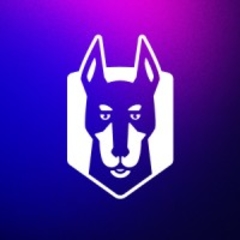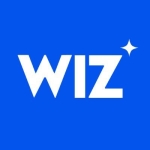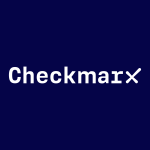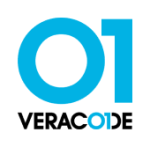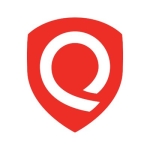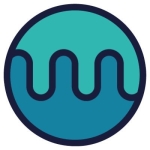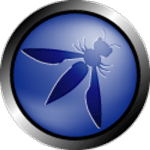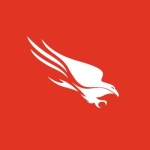What is our primary use case?
We have been considering Snyk in order to improve the security of our platform, in terms of Docker image security as well as software dependency security. Ultimately, we decided to roll out only the part related to software dependency security plus the licensing mechanism, allowing us to automate the management of licenses.
We have integrated Snyk in the testing phase, like in the testing environment. We are in the process of rolling the solution out across our entire platform, which we will be doing soon. The APIs have enabled us to do whatever we have needed, and the amount of effort for the integration on our end has been reasonable. The solution works well and should continue to work well after the full-scale roll-out.
How has it helped my organization?
We expect to get additional benefits in terms of validating our software security.
The solution does its job to help developers find and fix vulnerabilities quickly. So, it is working well.
What is most valuable?
- The platform's ease of use
- Good support from the customer success team
- A transparent solution
- Functionally coherent and powerful
The overall goal is to have a high security platform delivered in an easy way. This is in terms of the effort that we have to put in as well as cost. From this perspective, Snyk looks like the most promising solution. So far, so good.
It is easy for developers to use. The documentation is clear as well as the APIs are good and easily readable. It's a good solution overall.
What needs improvement?
We would like to have upfront knowledge on how easy it should be to just pull in an upgraded dependency, e.g., even introduce full automation for dependencies supposed to have no impact on the business side of things. Therefore, we would like some output when you get the report with the dependencies. We want to get additional information on the expected impact of the business code that is using the dependency with the newer version. This probably won't be easy to add, but it would be helpful.
Buyer's Guide
Snyk
April 2025
Learn what your peers think about Snyk. Get advice and tips from experienced pros sharing their opinions. Updated: April 2025.
850,671 professionals have used our research since 2012.
For how long have I used the solution?
We have been using it for about three months.
What do I think about the stability of the solution?
So far, we have had no concerns regarding the solution's stability. We have had no downtime.
What do I think about the scalability of the solution?
The scalability is okay.
When it comes to direct users who are managing it or doing the integration for Snyk, then there are a few developers from the team who own the solution.
The goal is to roll this out across all services and supported technologies. Once we finish our rollout phase, then we expect to have full adoption. Thanks to our internal integration, teams will just be seeing the updated dependencies whenever they are available. So, Snyk will be doing the hard magic behind the scenes for everyone.
How are customer service and support?
The customer success team is a solid team. I liked their approach from the very beginning and after signing the contract. They kept things looking good, which is a good sign.
We haven't had an opportunity to validate some hard cases with the technical support yet.
Which solution did I use previously and why did I switch?
We did not previously use another solution.
How was the initial setup?
The initial setup was easy and nicely documented.
We have been managing the deployment with other initiatives that we are running. We haven't had major obstacles with the deployment so far.
For our implementation strategy, we first worked on the plan of, "How do you want to integrate it?" We investigated the best setup, then we just went to the implementation phase from the research phase.
What about the implementation team?
One software engineer is enough for deployment and maintenance. We had to split the duties of this between several people, but one person is enough.
Keep extracting knowledge from the Snyk team. They are very helpful during the process, so make sure to use them.
What was our ROI?
The more security that we have, the more confident we are. You never know when you will be actually attacked. Hopefully, this will not be validated anytime soon in reality. However, by doing our penetration tests, we are validating the system on a regular basis, which will also help improve our overall confidence in this area.
It gives us peace of mind that there is nothing hidden that hasn't been taken care of. That is also important.
The solution has reduced the amount of time it takes to fix and find problems.
What's my experience with pricing, setup cost, and licensing?
The pricing is reasonable.
Which other solutions did I evaluate?
For the Docker security feature use case, we decided to go with an open source solution (Trivy), because it is sufficient for our needs. Integration with Trivy was cheap and easy, which makes it cost-effective. Our current use case was simple enough that the existing open source tool was sufficient. Maybe there are use cases that are more advanced and sophisticated, where the open source solution would not be sufficient for an organization. In such cases, the benefits from the paid version would be worth the money. I think it boils down to the specific use case of a company.
We were not able to find a sufficient, elegant solution for the dependencies part of our use case. That is why we invested in our partnership with Snyk. After evaluating paid and open source solutions, Snyk was selected as the best tool.
What other advice do I have?
I have heard from my team that it has a comprehensive database. Hopefully, it will work well during the production usage. Our hopes are high. So far, we haven't seen any downsides.
We have our internal processes for maintaining and updating dependencies in general. We will be incorporating any suggested updates coming from Snyk into our internal, already-existing process and platform, with some additional effort from our teams. Hopefully, there won't be any major additional effort. Hopefully, cases needing additional effort for issues will be rare.
We are using the SAST version of Snyk. Its complexity is reasonable.
I would rate it as an eight out of 10.
Disclosure: PeerSpot contacted the reviewer to collect the review and to validate authenticity. The reviewer was referred by the vendor, but the review is not subject to editing or approval by the vendor.

